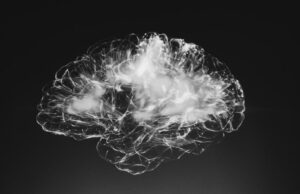 The goal of every meditation aspirant is to come to know the Self. Most people who are drawn to meditation believe there is something worthwhile in knowing the Self. Whether an infinite awareness, profound and eternal peace, or a life filled with blessings, meditation, for the seeker, has value, warranting hours (weeks, months, years) of practice. And in this quest for self-discovery, the seeker often overlooks what lies right beneath his consciousness. The paradox inherent in finding the Self is that you can never fully comprehend what you are with the human mind. You can only come to know yourself by acknowledging and understanding what you are not. This, the yogis call neti-neti.
The goal of every meditation aspirant is to come to know the Self. Most people who are drawn to meditation believe there is something worthwhile in knowing the Self. Whether an infinite awareness, profound and eternal peace, or a life filled with blessings, meditation, for the seeker, has value, warranting hours (weeks, months, years) of practice. And in this quest for self-discovery, the seeker often overlooks what lies right beneath his consciousness. The paradox inherent in finding the Self is that you can never fully comprehend what you are with the human mind. You can only come to know yourself by acknowledging and understanding what you are not. This, the yogis call neti-neti.
Neti-neti means “not this, not this” in Sanskrit, the ancient language of the yogis. It is the process of negating what one is not, like the body or the mind, the thought or emotions, or anything else that is not permanent and eternal. This practice enables aspirants to gain a deeper understanding of the true nature of their consciousness. This practice is most aligned with Jnana yoga, the path of knowledge in Advaita Vedanta.
When first attempting internal quietude, the mind will invariably bring attention to physical sensations, internal feelings (emotions), and thoughts. It is the goal of the aspirant to recognize that these elements of material existence are not the Self but products of the Self in a progression from Self to consciousness to mind to brain to sensation to the physical world. In so doing, they will bring themselves closer to attuning to their true nature, which Advaita Vedanta terms as parabrahman or the Absolute.
The parabrahman refers to the ultimate, supreme, and transcendent reality, beyond all descriptions and conceptualizations. It is considered the source and ground of all existence, both immanent and transcendent, and is often described as formless and without attributes. It is for this reason that the yogis explain that one can never completely, in totality, know one’s absolute Self, not with the human mind or its conceptualizations. One can come to know the Self experientially, as the Self will provide its own expression for self-realization to the earnest seeker, when the seeker’s mind has ripened in preparation to receive it. Thus, the seeker needs only to seek and return oneself to the interface of Self and its product, which is the expression of self. Let me explain.
 A tenet of Advaita Vedanta is that only the Absolute is real and eternal. Nothing transient can ever be real. Therefore, to assess the reality of a thing, one must only ask if it is eternal; if not, then it is not a part of the ultimate reality. As such, the physical realm with its material nature, which includes the human body, is both transient and unreal. Nothing in the physical world lasts forever. There is even a law known as the Second Law of Thermodynamics, which says: All things must deteriorate. If the physical world is not real, then your body cannot be real either. For this reason, the yogis say that the physical world is an illusion, one created by your mind.
A tenet of Advaita Vedanta is that only the Absolute is real and eternal. Nothing transient can ever be real. Therefore, to assess the reality of a thing, one must only ask if it is eternal; if not, then it is not a part of the ultimate reality. As such, the physical realm with its material nature, which includes the human body, is both transient and unreal. Nothing in the physical world lasts forever. There is even a law known as the Second Law of Thermodynamics, which says: All things must deteriorate. If the physical world is not real, then your body cannot be real either. For this reason, the yogis say that the physical world is an illusion, one created by your mind.
Now, this philosophy is not unique to Advaita Vedanta. Idealism as a Western philosophical tradition dates back to the ancient Greeks and was championed by such luminaries as Plato, Berkeley, Kant, and Hegel. Idealism emphasizes that reality is in some way dependent on the mind, whether individual or universal. Idealists often believe that ideas, concepts, or mental representations are more fundamental than material things. So, idealists and yogis foundationally agree that the physical world is not the ultimate reality.
However, Advaita Vedanta and Idealism may diverge in their notions of mind being the ultimate reality. Advaita Vedanta teaches that the body, representing the physical world, is a product of the mind. The mind, however, is not the ultimate reality either. It, too, is transient and impermanent. When a person develops amnesia, do they cease to be the same person? Hasn’t dementia shown many of us that even our closest loved ones can change cognitively as they age? That is because the mind is impermanent; it is not a part of the ultimate reality.
Some people believe that how we feel is what we really are. Feelings of love, community, kindness, respect, and honor are the essence of our true selves. But, alas, like the mental realm, emotions are transient and impermanent. How many of us have felt vehemently about one thing or another, only to see things differently later, and change how we feel? Nothing is easier to change than our perspective. So, transient emotions or feelings cannot be who we are. The mind and its emotions are a product of what we call consciousness.
 Consciousness has many definitions. From the perspective of Advaita Vedanta, consciousness is the sense of “I am”. It is the primordial sense – the thought and feeling that we exist. It is what Descartes meant when he said, “I think, therefore I am.” The feeling that underlies all feelings is of existence. When we awaken in the morning, our very first thought is about the “I am”. It may be in reference to location or time, such as in “where am I?” or “in what time am I?” But the primary thought of each individual is about the “I am”. Consciousness is responsible for the mind – its thoughts, beliefs, memories, perceptions, and interpretations – and thus, the mind’s creation, the physical world. Consciousness is the witness, the entity that experiences the world. This might lead one to surmise that the true nature of the Self is the consciousness, and that would be closer to actuality. However, Advaita Vedanta states that individual consciousness is not the true Self either, as it, too, comes and goes with the physical mind and body. But for the purpose of mediation and seeking the Self, the consciousness, the “I am”, is as close as you need to get.
Consciousness has many definitions. From the perspective of Advaita Vedanta, consciousness is the sense of “I am”. It is the primordial sense – the thought and feeling that we exist. It is what Descartes meant when he said, “I think, therefore I am.” The feeling that underlies all feelings is of existence. When we awaken in the morning, our very first thought is about the “I am”. It may be in reference to location or time, such as in “where am I?” or “in what time am I?” But the primary thought of each individual is about the “I am”. Consciousness is responsible for the mind – its thoughts, beliefs, memories, perceptions, and interpretations – and thus, the mind’s creation, the physical world. Consciousness is the witness, the entity that experiences the world. This might lead one to surmise that the true nature of the Self is the consciousness, and that would be closer to actuality. However, Advaita Vedanta states that individual consciousness is not the true Self either, as it, too, comes and goes with the physical mind and body. But for the purpose of mediation and seeking the Self, the consciousness, the “I am”, is as close as you need to get.
This is because the true Self, the transcendent, eternal, indescribable, unnamed, unformed, and unborn essence of the ultimate reality lies just beneath the consciousness. And as the physical world is a product of the mind, and the mind a product of consciousness, the consciousness itself is a product of the Absolute, or what the yogis call parabrahman. Only parabrahman can be the Self.
The parabrahman can never be known by the consciousness, because perception comes from consciousness itself. A thing cannot be both subject and object at the same time. Another way to envision this is to consider your eyes. Without a mirror or other reflection, can your eyes see themselves? How can consciousness be both the perceiver and the perceived? Consciousness witnesses the mind, the body, and the internal and external worlds. It can even observe itself. But who is witnessing the witness? It’s the parabrahman.
 The yogis teach that it is neither necessary nor possible to try to know parabrahman. All one must do is focus on the consciousness itself, the “I am”. In meditation, the goal is to come as close as possible to attuning to the Self. To do so, one must negate the perceptions of what they are not. That means negating the physical body and its sensations as yourself: the physical world is transient; cell turnover occurs within days, such that in a decade, you are essentially a completely different physical body. It also requires negating the mind as oneself: your thoughts are produced like gas in your colon; that is the function of the brain as an organ. They are not you. That includes negating your memories, your feelings, your beliefs, and your cultural nuances as yourself. These are all products of your consciousness.
The yogis teach that it is neither necessary nor possible to try to know parabrahman. All one must do is focus on the consciousness itself, the “I am”. In meditation, the goal is to come as close as possible to attuning to the Self. To do so, one must negate the perceptions of what they are not. That means negating the physical body and its sensations as yourself: the physical world is transient; cell turnover occurs within days, such that in a decade, you are essentially a completely different physical body. It also requires negating the mind as oneself: your thoughts are produced like gas in your colon; that is the function of the brain as an organ. They are not you. That includes negating your memories, your feelings, your beliefs, and your cultural nuances as yourself. These are all products of your consciousness.
Return to the “I am” repeatedly. Do it in meditation and do it when not. Bring your mind back to the primordial awareness – that which precedes all thought, feeling, sensation, and interpretation. By doing so, you ripen the mind for Self-realization. All you need to do is attune to the consciousness, the essence of your existence. The parabrahman will do the rest. Like a fish, you swim and continue to swim, regularly, daily, and eventually, parabrahman, just like a fisherman’s rod and hook will snag you and reel you in.
Neti-neti is a technique to bring you closer to knowing your true Self. You do it by negating what you are not. You need not struggle to understand yourself; just focus on the primordial awareness, the consciousness, the sense of “I am”. Do it regularly and insatiably, as if parched and desperate for a drink. All you need to do is focus on the “I am” and not get carried away by the distractions of what you are not. You needn’t stop your incoming thoughts; simply detach from them, and parabrahman will do the rest. Parabrahman wants you to know your Self. It has provided you with a reflection to see all elements of yourself, for the sole purpose of bringing you to the Source. Once there, consistently and quietly, it will reel you in. When a fish returns to fertile water, it is prime for the catching.














